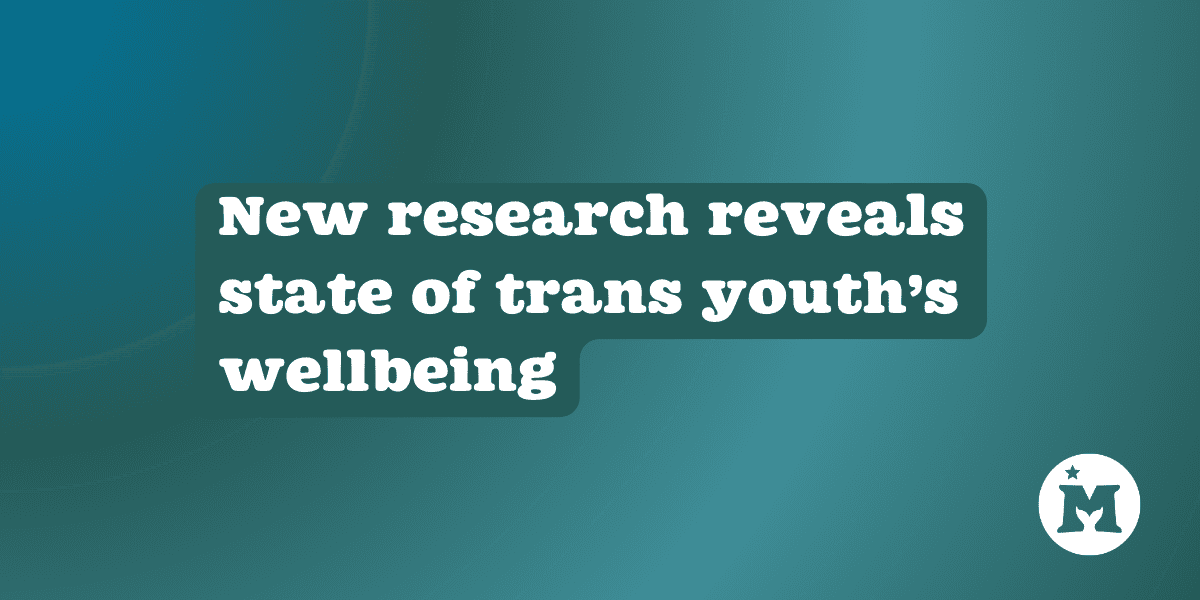
This week, research was published into the experiences of nearly 4000 trans young people who spoke to their GP about wanting transition between 2011 and 2021.
The study looked at everyone under 18 years old where their GP had recorded that they were experiencing gender dysphoria or gender incongruence.
Long waiting lists meant that many young people who wanted to transition were never seen by the now-closed specialist Gender Identity Development Service (GIDS).
This research is so important because previous studies on trans young people have not captured outcomes for all trans young people who had approached their GP for gender-affirming care.
Across all nations of the UK, the NHS is failing to deliver the care that trans children and young people need.
Every single child and young person should be able to get the care that they need to grow up happy and healthy. And right now, trans youth are being failed.
We need trans health now, including rapid expansion of NHS youth gender services and significant investment in mental health support for all young people.
We need a future where trans young people can access the healthcare they need, without having to wait for years or fear their experiences will be dismissed.
In this blog, we provide a summary of some of the research’s key findings, and what it might tell us about trans youth’s wellbeing in the UK.
More trans young people are reaching out to their GPs
Between 2011 and 2021, the number of young people talking to their GPs about being trans increased significantly, from about one in 60,000 (equating to 192 children and young people nationally) to about one in 1,200 in 2021 (equating to 10,291 nationally).
Historically, trans youth have found their GPs to be uninformed, dismissive and sometimes outright hostile towards them. It is welcome that more young people have felt able to talk to their local doctors about gender, reflecting growing acceptance, visibility and recognition of the trans community.
Trans young people who were assigned male at birth were less likely to speak to their GP about their gender, suggesting there remains specific barriers for this group to access healthcare support.
Some academics have pointed toward the role of transmisogyny, the specific discrimination faced by trans women and transfeminine people, to explain this. The particular violence and ridicule targeted towards those viewed as trans feminine might explain why they are less likely to be open about being trans and reach out to their GP for support.
Trans youth are experiencing poor mental health
Over half of the young people who spoke to their GP about being trans had a record of anxiety, depression or self-harm at some time before reaching the age of 19. The study also revealed that 1 in 5 young people that GPs recorded as having gender dysphoria had a history of self-harm.
Amongst all young people aged 17-19 years old, it is estimated that around 17% have a mental health disorder. This is compared to 55% of the same age group of trans youth included in this study.
This confirms something we already know: there is a mental health crisis for trans youth.
Trans young people live in every part of the UK
The researchers found that there was no correlation between the likelihood that a young person went to their GP for support with transition, and the level of deprivation where they live.
This is surprising, because trans adults are more likely to live in areas with high deprivation.
While the reasons behind this are complicated, we know that trans adults face significant discrimination in employment, housing and often spend thousands of pounds on their transition. Equally, many trans young people cannot count on financial support from their parents if they are not accepted for who they are when they leave home.
This Government must do more to ensure that trans people have access to sufficient financial support as they transition to adulthood.
If you are impacted by the content of this explainer, Mermaids’ helpline and webchat services are open Monday to Friday, 1pm-8:30pm on 0808 801 0400.
